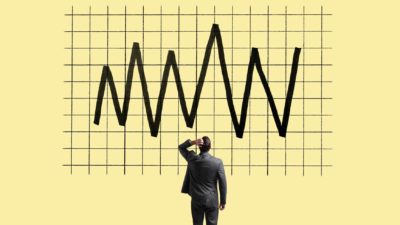"But what else will we use?"
It was a genuine question, in response to my suggestion that ASX CEOs should stop giving 'guidance'.
It's even a reasonable question… assuming that guidance is both accurate and in shareholders' best interests.
But it's usually not.
Which makes using it… a little silly.
But let's backtrack a bit.
Warren Buffett – the world's greatest investor and greatest investment teacher – released his company's third-quarter results recently.
In it, I noted this statement:
In varying degrees, the COVID-19 pandemic has affected our operating businesses. In addition, significant disruptions of supply chains and higher costs emerged in 2021 and have persisted in 2022. Further, geopolitical conflicts, including the Russia-Ukraine conflict, have developed in 2022. We cannot reliably predict future economic effects of these events on our businesses or when our operations will normalize. Nor can we reliably predict how these events will alter the future consumption patterns of consumers and businesses we serve.
In other words?
'You don't know what's going to happen next, and neither do we."
Which is… refreshing, huh?
It's also uncommon.
Happily, it's less rare than it used to be – those two 'X Factor' events reminding corporate bosses that the future is uncertain.
But many still persist. And many more will return to giving 'guidance', once they feel like the coast is clear.
When was that last the case?
Maybe January 2020?
How did that end up?
Ego is a funny thing.
We all want to believe we know things. Doubly so when someone asks us, because they think we might or should know.
Cue the old Telstra ad:
Kid in the back seat: "Dad, why did they build the Great Wall of China"
Father, driving: "… To keep the rabbits out…. Lot of rabbits in China"
The ASX version is more similar than we – or the CEOs who get asked the question – would like to admit, perhaps even to ourselves.
How so?
Let's say it's November 2022 (convenient, huh?).
And some analyst from a stockbroker or fund is on a company conference call, and wants to know what to expect for the rest of the financial year.
It's a reasonable question.
Sort of.
Actually, it's not that reasonable, on the same basis that trying to answer it is similarly unreasonable.
Why?
Well, let's think about it.
There are seven months of the financial year remaining.
Seven months over which inflation could rise. Or not.
Competitors could thrive. Or die.
Consumers could spend up big. Or snap the wallets shut.
Central banks could raise rates. Or keep them on hold.
Currencies could rise. Or fall.
Unemployment could stay low. Or increase.
Regulations could change. Or stay the same.
And they're just the things that came immediately to mind.
But you really expect a CEO to know what'll be happening next June?
And the CEO herself also thinks she might know?
Ladies and gentlemen, let me climb to the top of the tallest building in town, as the parade slowly makes its way past and shout – and please, say it with me:
"The Emperor Has Got Not Clothes!"
Now, remember the bloke I mentioned at the top of this piece?
His statement was in response to my assertion that CEOs should stop giving 'guidance', because it's useless.
"But what else will we use?" was his response.
Now just think about that a little further.
He was essentially saying "I know it'll probably be wrong — or lucky — but at least I can put something in my spreadsheet".
Hmm…
That analyst – who will remain nameless to protect the guilty and because I can't actually remember his name! – was content to play the game.
Why?
Because he got to fill in a spreadsheet, give that information to his customers and his boss, and then – if and when he was wrong – use that other useless phrase:
"The company missed expectations".
See – it's not the analyst's fault. The expectations weren't wrong… the company was.
Perfect.
Off the hook.
I hope – if I'm doing my job well – you can grasp the entire absurdity of the whole dog-and-pony show.
- Analyst asks silly question.
- CEO gives silly answer.
- Analyst reports silly answer.
- Company does or doesn't get lucky enough to get close to silly answer.
- Analyst looks smart if he's right, or blames company if he's wrong.
Please tell me I'm not the only one who thinks this is barking mad?
But… I need you to pay attention for just a little longer… it gets worse.
See, the CEO doesn't want the company to 'miss expectations'
She wants the market to like and respect her. And to like the company's shares.
And so?
And so, once that 'guidance' is given, she'll often make sure it's delivered – come hell or high water.
Which sounds good… until you consider what happens inside a company to deliver on that vanity exercise.
(And lest you think this is hypothetical… I've been there many times in the past, and seen it first-hand.)
The CEO, who otherwise considers herself a business builder and long-term value creator becomes… less so.
Costs are slashed, whatever the long-term price.
Sales are made, no matter the implication. Deals are done, orders are pulled forward, discounts are given.
And then?
Well, it's harder to make the next sale when your customer expects the same discounts or is already overstocked from the last deal. So the desperation builds…
(I have it on good authority that at one company I worked for, years ago, orders were invoiced and trucks were sent out on the last day of the financial year, only to return to the warehouse the next day for the invoice to be reversed!)
As Charlie Munger says, "Show me the incentive, and I'll show you the outcome".
Indeed.
Look, not all analysts are trying to get an easy ride. Most work hard, and just want to believe. So they do.
Not all CEOs will deliberately screw with the long-term health of a company just to deliver on 'guidance'.
But, well… enough of them do it, many either without thinking, or after justifying it to themselves, convincing themselves they're acting on noble or honest grounds.
And so, back to Buffett.
Yes, COVID and the war in Ukraine are remarkable one-offs. But Buffett has never given guidance.
He just doesn't.
Because, rare among CEOs, he is both honest and humble enough to know (and admit) what he doesn't know.
If I were a director of a public company, I'd be strongly encouraging my fellow directors and CEO to abandon the practice of providing 'guidance'.
Which… might be enough to ensure I'm never asked to serve on a public company board.
Because people prefer to be popular. And to be well-thought-of, for giving the market what it wants.
I don't blame people for wanting to believe that the future is knowable. It's much more comfortable than uncertainty.
And self-delusion is a powerful force.
Unfortunately, that's rarely the best way to build long-term value.
Investors should be careful what we wish for.
Fool on!








